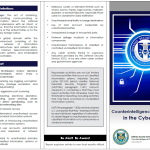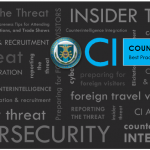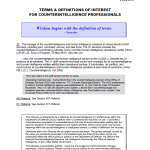
A small pamphlet released in October 2014 by the Defense Security Service discussing potential threats and countermeasures to protect U.S. Government information systems and cleared industry.

United States cleared industry is a prime target of many foreign intelligence collectors and foreign government economic competitors. Cleared employees working on America’s most sensitive programs are of special interest to other nations. The number of reported collection attempts rises every year, indicating an increased risk for industry. While any geographic region can target sensitive or classified U.S. technology, DSS has consistently found that the majority of suspicious contacts reported by cleared industry originate from East Asia and the Pacific regions. Every region has active collectors. Cleared contractors should remain vigilant regardless of the collector’s assumed country of origin.

This Glossary is designed to be a reference for counterintelligence (CI) professionals within the Department of Defense (DoD); however other CI professionals may find it of use. It provides a comprehensive compilation of unclassified terms that may be encountered when dealing with the dynamic discipline of counterintelligence and related activities. Where some words may several meanings within the counterintelligence or intelligence context, a variety of definitions are included.
A Defense Security Service presentation from December 2012 outlining information and statistics on defense industrial base cyber incidents and intrusions.
This guide gives Department of Defense (DoD) staff and contractors an overview of the kinds of marking required to protect classified and unclassified controlled information that cannot be disseminated to all audiences. The guide offers an integrated approach to the major requirements for marking and control of information, briefly explaining the reasons for marking and providing examples of correctly marked information. To facilitate information sharing and declassification processes, whenever practicable a classified attachment, addendum, annex, enclosure, or similar section shall be used when classified information constitutes only a small portion of an otherwise unclassified document.